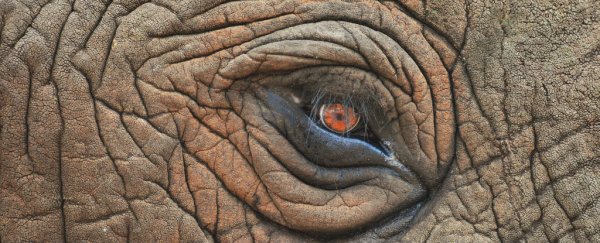In trying to find a cure for cancer, where better to look than the animals that experience very low rates of the disease, or don't get it at all? That's the thinking behind new research into elephants and naked mole rats, which scientists are hoping could point the way towards better treatments in humans.
The root cause of cancer is a chance mutation in a group of cells, which is why it's puzzling that elephants get cancer so rarely - they have 100 times the number of cells us humans do, yet on average only 1 in 20 elephants develop the disease compared to 1 in 5 people.
A team of researchers in the US looked closer, and found an abundance of a gene called TP53. This gene is known for its ability to repair damaged DNA and thus halt the spread of cancer, and it's some 20 times more common in elephants than it is in human beings. It appears elephants have developed more of these genes as they've evolved, in part to protect calves born to older mothers.
"These findings, if replicated, could represent an evolutionary-based approach for understanding mechanisms related to cancer suppression," says the report, published in the Journal of the American Medical Association.
Naked mole rats are even more miraculous - they never develop cancer, even when scientists try and induce it artificially. What appears to be happening, at least according to a recent study, is that the mole rats are using natural mechanisms to clamp down on the spread of cancer and fight back against the mutation.
That mechanism involves a polymer called hyaluronan. The thickness of this polymer controls the mechanical strength of cells, but also regulates their growth at the same time. Researchers have been able to demonstrate how eradicating this polymer in naked mole rats allows cancers to spread as they normally would - which in turn suggests that hyaluronan could be crucial in keeping the disease at bay. The underground creatures have around five times the level of hyaluronan as humans do.
"We speculate that naked mole rats have evolved a higher concentration of hyaluronan in the skin to provide skin elasticity needed for life in underground tunnels," reads the separate report, published in Nature. "This trait may have then been co-opted to provide cancer resistance and longevity to this species."
It's a big biological jump from elephants and naked mole rats to human beings, of course - the species just aren't that alike - but the findings could still prove vitally important in developing treatments and cures in the future.
